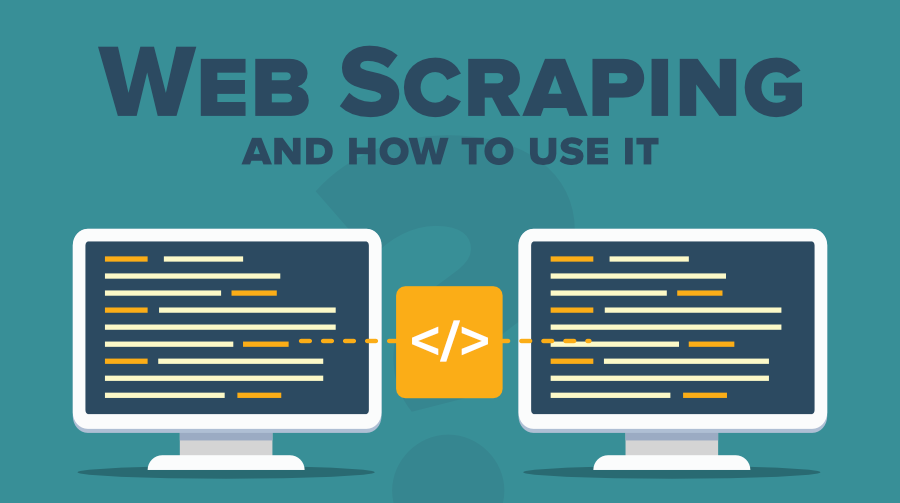
Web scraping has emerged as a powerful tool for extracting data from the vast expanse of the internet. While it offers numerous benefits for businesses AI Powered Web Scraping, researchers, and individuals alike, it also raises significant ethical and legal questions. Understanding the nuances of these issues is essential for anyone looking to engage in web scraping. In this article, we’ll explore the ethical implications of web scraping, key legal considerations, and best practices to navigate this complex landscape.
Understanding Web Scraping and its Applications
Web scraping involves extracting data from websites using automated tools or scripts. It can be employed for various purposes, including:
Market research: Companies track competitors’ prices and product offerings.
Content Aggregation: Journalists and bloggers compile information from multiple sources.
Data Analysis: Researchers gather datasets for academic studies or machine learning projects.
Personal Use: Hobbyists collect data for personal interests, like sports statistics.
While these applications can yield valuable insights, they often intersect with ethical and legal considerations that require careful navigation.
The Ethical Dilemmas of Web Scraping
- Respect for Intellectual Property
Many websites contain copyrighted material, including text, images, and databases. Scraping this content without permission can infringe on intellectual property rights. It’s important to consider whether the data being collected is protected by copyright and if so, to seek permission from the website owner. - Data Privacy Concerns
With growing concerns about data privacy, scraping personal information from websites raises ethical issues. Collecting data that includes personally identifiable information (PII) without consent can lead to violations of privacy laws and ethical standards. It’s crucial to avoid scraping data that could harm individuals or breach their privacy. - Impact on Website Performance
Automated scraping can place a heavy load on servers, potentially disrupting the service for legitimate users. This raises ethical questions about the responsibility of scrapers to minimize their impact on website performance. Responsible scraping involves respecting the website’s bandwidth and ensuring that your requests do not overwhelm the server. - Fair Use and Competition
Web scraping can blur the lines of fair competition. When businesses scrape competitor data, it raises ethical questions about the fairness of such practices. While competitive analysis is common, scraping practices that undermine a competitor’s business model or violate their terms of service can be seen as unethical.
Legal Considerations in Web Scraping
- Terms of Service (ToS)
Most websites have Terms of Service that outline acceptable behavior on their platforms. Violating these terms—such as by scraping data—can lead to legal repercussions. Before scraping a website, it’s essential to review its ToS and determine if scraping is explicitly prohibited. - The Computer Fraud and Abuse Act (CFAA)
In the united states, the CFAA makes it illegal to access a computer system without authorization. Courts have debated whether scraping data from publicly accessible websites violates this law. The outcomes of these cases have been mixed, highlighting the legal gray areas surrounding web scraping. - Copyright Law
As mentioned earlier, scraping copyrighted material can lead to infringement claims. If you intend to use scraped data commercially, you must be particularly cautious about copyright implications and consider seeking legal advice. - Data Protection Regulations
Laws like the General Data Protection Regulation (GDPR) in the european union impose strict rules on how personal data is collected and used. Scraping personal data without compliance with such regulations can result in severe penalties.
Best practices for Ethical Web Scraping
To navigate the ethical and legal complexities of web scraping, consider the following best practices:
Check Robots. txt: Before scraping a website, review its robots. txt file to understand what data is permissible to scrape. Respecting these guidelines demonstrates good faith and ethical intent.
Read and Follow ToS: Familiarize yourself with the website’s Terms of Service. If scraping is prohibited, consider reaching out for permission or exploring alternative methods to obtain the data.
Limit Request Frequency: Implement rate limiting in your scraping scripts to avoid overwhelming servers. This helps maintain website performance and demonstrates respect for the website’s resources.
Avoid Scraping Personal Data: Refrain from collecting personal information without consent. If your project involves such data, ensure compliance with relevant privacy laws.
Attribution: When using scraped data, give proper credit to the original source. This not only acknowledges the work of others but also enhances your credibility.
Conclusion
Web scraping presents a powerful opportunity to access and analyze data, but it also comes with ethical and legal responsibilities. By understanding the implications of your actions and adhering to best practices, you can navigate the gray areas of web scraping responsibly. Ultimately, striking a balance between innovation and ethical conduct will not only safeguard your projects but also contribute to a more respectful online ecosystem.
